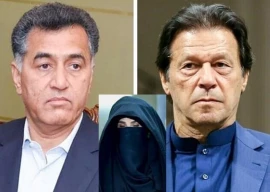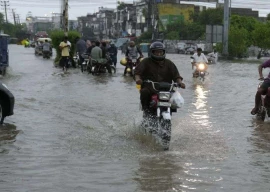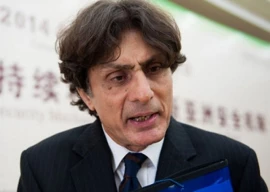1724000965-0/download-(1)1724000965-0.jpg)
Bangladesh will maintain support both for its immense Rohingya refugee population and its vital garment trade, Nobel laureate and new leader Muhammad Yunus said on Sunday in his first major policy address.
Yunus, 84, returned from Europe this month after a student-led revolution to take up the monumental task of steering democratic reforms in a country riven by institutional decay. His predecessor Sheikh Hasina, 76, had suddenly fled the country days earlier by helicopter after 15 years of iron-fisted rule.
Setting out his priorities in front of diplomats and UN representatives, Yunus vowed continuity on two of the biggest policy challenges of his caretaker administration.
“Our government will continue to support the million-plus Rohingya people sheltered in Bangladesh,” Yunus said. “We need the sustained efforts of the international community for Rohingya humanitarian operations and their eventual repatriation to their homeland, Myanmar, with safety, dignity and full rights,” he added.
Bangladesh is home to around one million Rohingya refugees. Most of them fled neighbouring Myanmar in 2017 after a military crackdown now the subject of a genocide investigation by a United Nations court.
The weeks of unrest and mass protests that toppled Hasina also saw widespread disruption to the country’s linchpin textile industry, with suppliers shifting orders out of the country. “We won’t tolerate any attempt to disrupt the global clothing supply chain, in which we are a key player,” Yunus said.
Bangladesh’s 3,500 garment factories account for around 85 percent of its $55 billion in annual exports.
Yunus won the Nobel Peace Prize in 2006 for his pioneering work in microfinance, credited with helping millions of Bangladeshis out of grinding poverty.
He took office as “chief adviser” to a caretaker administration – all fellow civilians bar two retired generals – and has said he wants to hold elections “within a few months”.
Before her ouster, Hasina’s government was accused of widespread human rights abuses, including the mass detention and extrajudicial killing of her political opponents.
She fled the country on August 5 to neighbouring India, her government’s biggest political patron and benefactor, when protesters swarmed into the capital Dhaka to force her out of office.
‘Hundreds were killed’
“Hundreds of thousands of our valiant students and people rose up against the brutal dictatorship of Sheikh Hasina,” Yunus said during his address, at times visibly emotional.
“She fled the country, but only after the security forces and her party’s student wing committed the worst civilian massacre since the country’s independence,” he added. “Hundreds were killed, thousands were injured.”
More than 450 people were killed between the start of a police crackdown on student protests and her ouster three weeks later.
‘Dictatorship’
A UN fact-finding mission is expected in Bangladesh soon to probe “atrocities” committed during that time.
“We want an impartial and internationally credible investigation into the massacre,” Yunus said on Sunday. “We will provide whatever support the UN investigators need,” he added.
Yunus again committed to hold free and fair elections “as soon as we can complete our mandate to carry out vital reforms in our election commission, judiciary, civil administration, security forces, and media”.
“The Sheikh Hasina dictatorship destroyed every institution of the country,” he said. He added that his administration would “make sincere efforts to promote national reconciliation”.




1724000965-0/download-(1)1724000965-0-270x192.webp)












COMMENTS
Comments are moderated and generally will be posted if they are on-topic and not abusive.
For more information, please see our Comments FAQ